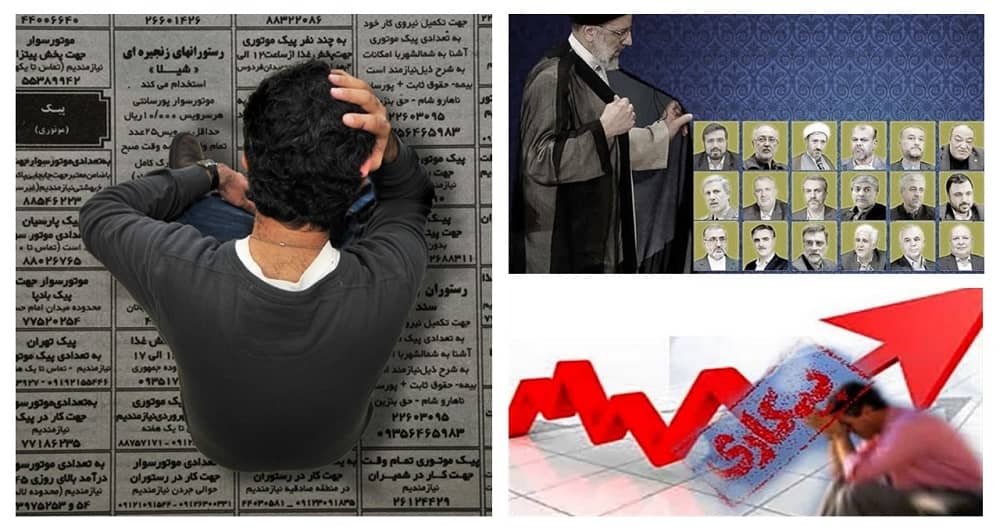
Rising unemployment in Iran
The Minister of Cooperatives, Labour and Social Welfare of Ebrahim Raisi‘s administration, recently announced that 14 million people in Iran do not have decent jobs.
Engineering of false statistics and figures are one of the regular tasks of the mullahs’ regime. The issue and problem of unemployment has not been spared from statistical engineering.
This may be the first time that an official in the mullahs’ regime has admitted to such a startling statistic, but the statistic itself is devoid of some facts that are hidden behind this media commentary.
Six to seven million people have informal jobs
Hojatollah Abdolmaleki also stated that between 6 and 7 million people have informal jobs and 2 million have part-time jobs.
A cursory glance at the statistics provided by Abdolmaleki reveals that some 22 to 23 million people in the country do not have a definite and dignified job or have turned to fake work or are completely unemployed.
Unemployment Statistics Engineering in Iran
In this statistic announced by Abdolmaleki, those who work one to two hours a week are considered employed and not as unemployed.
In addition, Abdolmaleki added that some do not have enough income despite having a job.
Abdolmaleki also announced that the number of people covered by social security has now increased by 500,000; however, there is no mention of the number of beneficiaries covered by social security that this body has previously supported.
Existence of widespread unemployment despite many executive bodies in the field of work
Referring to the unemployment rate in the country, Abdolmaleki added that to develop employment in the country, in the first stage unemployed people should be identified and trained. As if unemployment and the problem of unemployment in the country is an unknown phenomenon!
At the same time, the Minister stated that there are 71 executive bodies in this field. Still, the question that arises here is that despite this amount, why is Iran’s unemployment rate so high in this area?
Given that every unemployed person in the country can be the head of the household, according to statistics provided by Abdolmaleki, between 66 and 70% of Iranian households and their heads are suffering from unemployment or at least do not have a decent job.
The fact is that the mass murderer Raisi‘s administration does not want and cannot solve the problem of unemployment. Unemployment, like many other problems and sufferings of Iranian society, is the product of more than four decades of religious tyranny and widespread corruption of the ruling mullahs in Iran and can be solved only after the change of this regime in a free Iran.